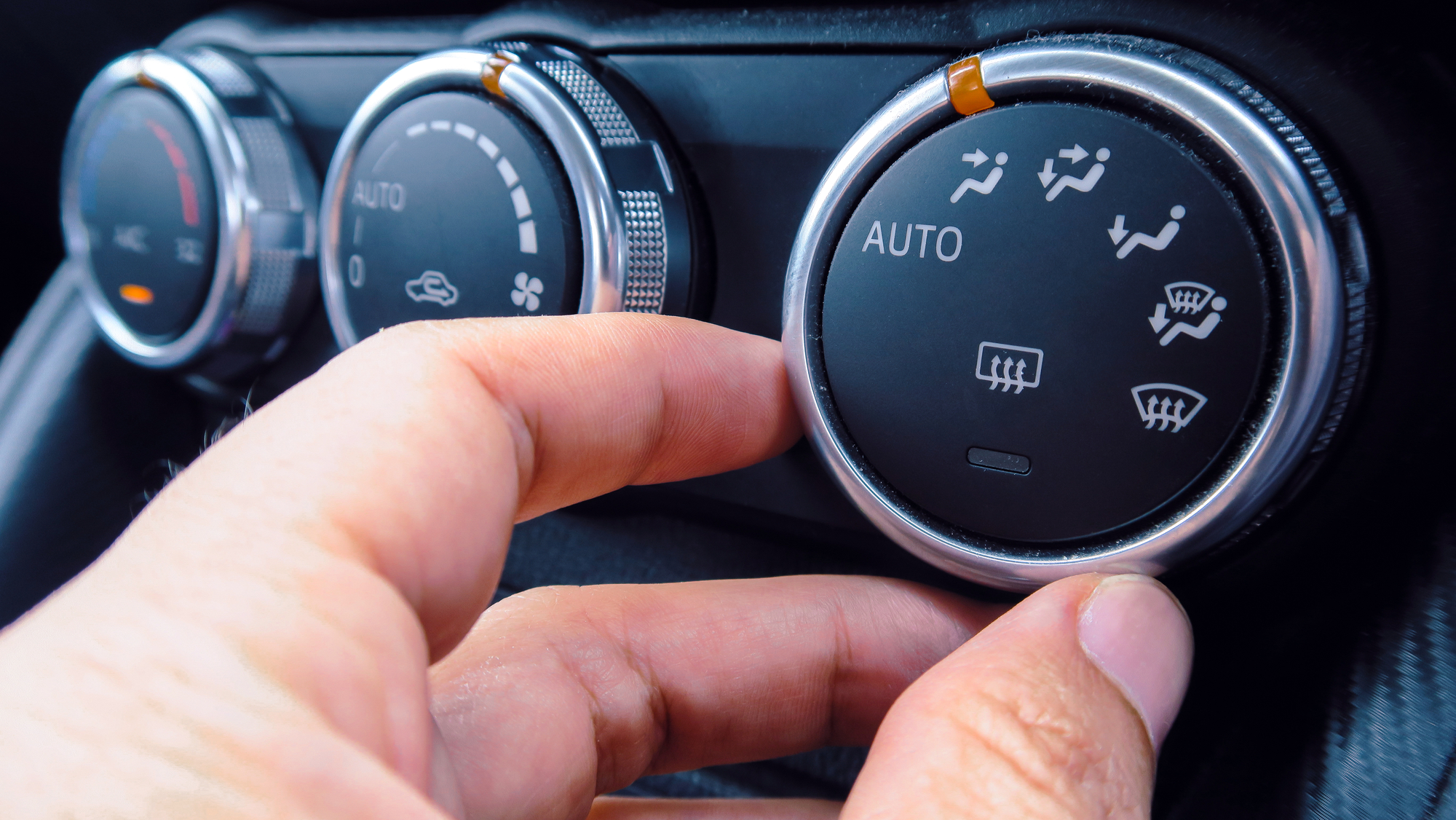One of the most frustrating vehicle breakages that can happen during the summer is the air conditioner malfunction. Recently I went through this situation firsthand, and I can assure you – being on the road when it is 85°F and the air conditioner only supplies stifling, warm air inside the car is an outright unbearable experience.
Although Air Conditioning breakages cannot be repaired by an unprofessional, vehicle owners can at least learn to detect the malfunction fast enough. Using a broken air conditioning can lead to additional breakages in other systems, which will increase the price of repairs. This article will help you get a general idea of how exactly air conditioning can break, meaning what parts and systems will require repairs. This will help you evaluate the price of repairs in the car service, and you won’t feel like you’re completely ignorant about your car.
That said, even if you will grasp all the knowledge about vehicle conditioning systems, repairs should always be done in the car service station unless you are a mechanic yourself.
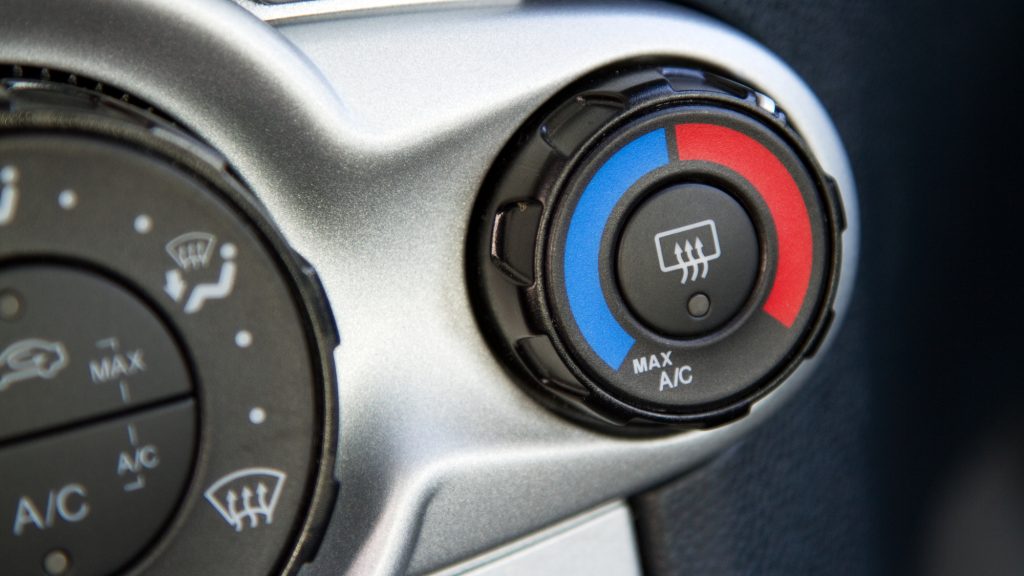
Why Is It Important to Know How to Detect Car AC Problems?
There are different icons and warning lights on the dashboard of a vehicle, for instance, Check Engine Light. Warning icons in modern vehicles can notify the driver about very different breakages, you’ll even be warned about low tire pressure.
But, surprise-surprise, there is one system’s breakage that never shows up on the dashboard. You guessed it right, air conditioning malfunctions rarely have corresponding warning icons on the dashboard. This means you have to be attentive to the signs and symptoms that could indicate the AC is broken. The problem is when you find one of the symptoms, different breakages can be at fault. This is why immediately after you’ve noticed something is wrong, it would be safer to turn off the air conditioning and give your car to the mechanic for maintenance when possible.
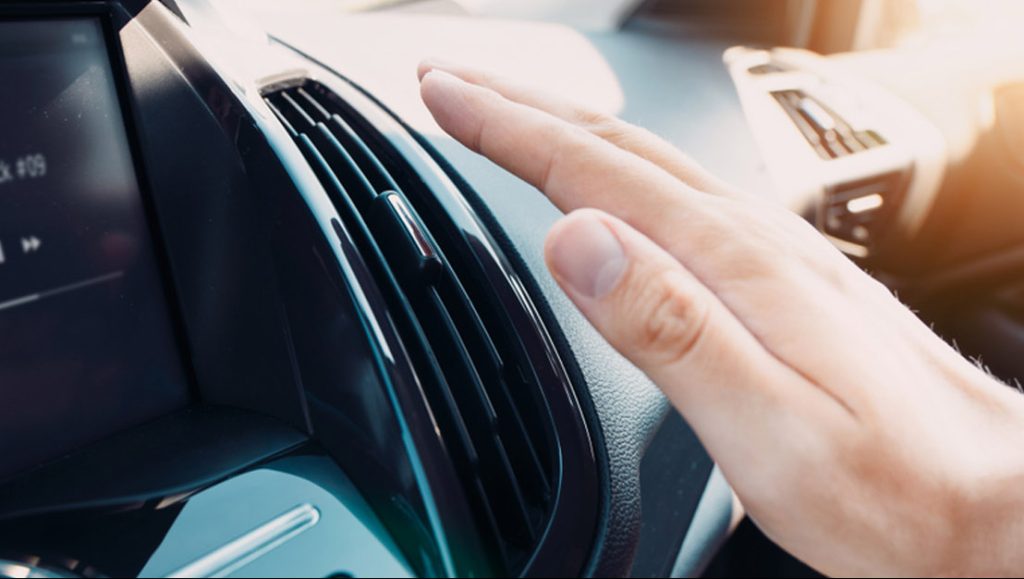
Poor Airflow in the Car’s AC
One of the symptoms of the malfunction in the air conditioning system is poor airflow. When the system works properly, especially on maximum settings, the air stream should be strong and cold. This symptom may manifest itself in slow, weak airflow not always accompanied by a change of temperature. It means that if you put the AC on maximum setting, the air may really be cold, but at the same time, the airflow will feel weak, as if on medium or even low setting.
Different breakages can cause this symptom. Maybe the hose in the air conditioning system broke down, or some sealant got loose. A malfunctioning fan may be another reason for poor AC airflow. Another, but unlikely reason, could be mildew in the car’s AC system, or any other substance blocking the airways.
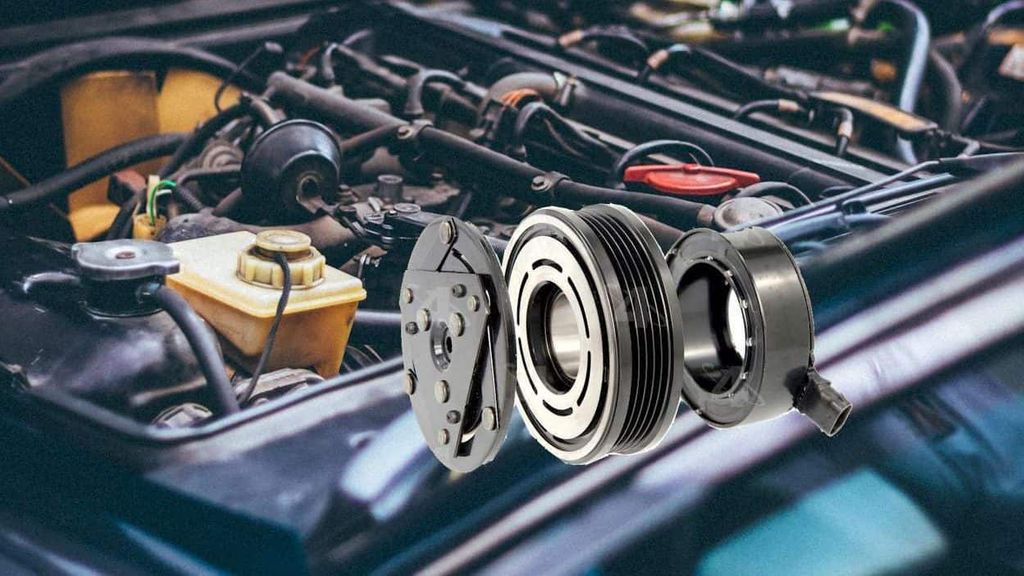
Car Air Conditioning is not Consistent
Sometimes the malfunction may fluctuate, meaning at times the AC will work properly, and at other times it will break down or act weird. When the air conditioner acts up like this, it may create frustrating situations where the mechanic tells you that the AC is working properly. But when you drive away from the car service it may happen again. This means that mechanic has to thoroughly check the vehicle or even take it for a ride to experience the problem first-hand.
Different problems could create inconsistency in the work of the car air conditioning. Leaking seals or the blown fuse could be among the problems that create the breakage. These are easy and cheap to fix. Compressor or compressor clutch breakages are more serious and would require more time and money to repair. A clog or some other obstacle in the car’s air conditioning system can be another reason for inconsistent work.

An Unpleasant Smell Coming Out of the Car’s Air Conditioning
If there is some strange, foul smell coming out of your car’s air conditioner while it is working, it could mean that the filter needs cleaning or replacement. It could also mean that some substances have been accumulated in the air conditioning system, changing the smell and emanating the stench. The most common substances that create an unpleasant smell in the AC are mildew and mold.
Warm Air is Coming Out of the Car’s AC
This symptom can be accompanied by other problems mentioned above, or it may appear by itself. When this happens, the airflow would be properly strong, but the temperature of the air would be uncomfortable and warm.
The most common reason for this breakage is the leakage in the system. The leak is usually easy, cheap, and fast to repair, although if it was left unchecked and unrepaired for a long time, other parts of the system may get broken too. Some clogs could be at fault too, which means that the system will have to be cleaned.
More serious breakages that result in the airflow being warm are damaged parts like condenser, compressor, or blower. These will probably be more expensive to fix than the leakage repairs.
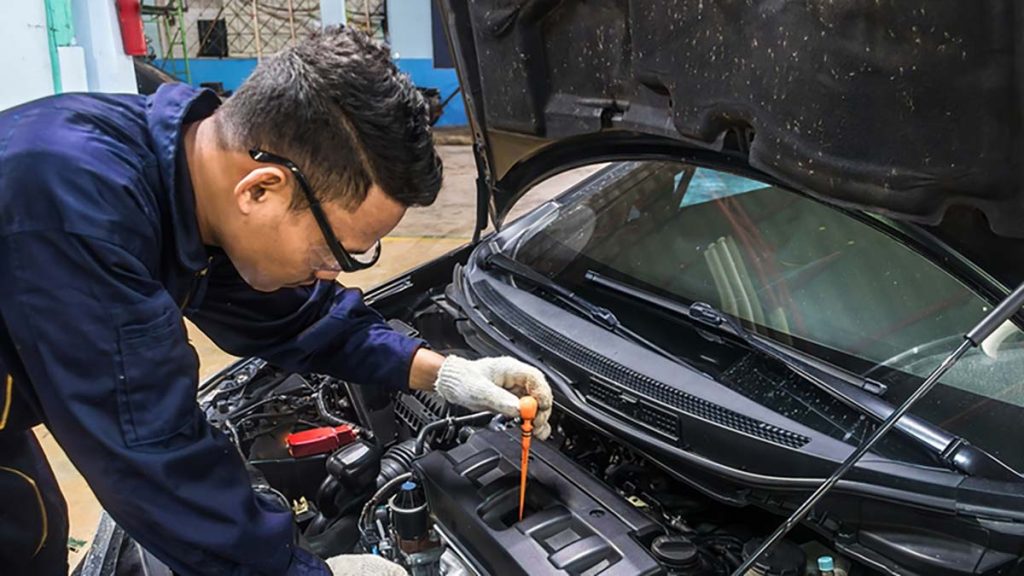
Car Service Check-Ups Should Include AC
Any diligent driver must take the vehicle they own to a car service for timely maintenance by a professional mechanic. Many people state that the car has to be checked every twelve months, but I say every six months is the perfect time that should leave almost no chances for sudden breakages.
And of course, remember to put the AC to a test too! Some mechanics may not check it thoroughly, so always push about the need to do a full check-up, including air conditioning systems. Air conditioning malfunctions may build up over time, which means that at the start they could be unnoticed by the driver, but will be uncovered by a mechanic. This will prevent the bigger troubles and save you some money on repairs.
Diagnosing a Car’s Air Conditioning Breakages by Yourself
If you have some knowledge about the air conditioning system of the vehicle, you could try and diagnose the problem yourself. Here is what you have to look for.
- While the AC is running, check if the cooling fans on the condenser or radiator (in some cars) are running. At the same time make sure there are no blockages on the condenser that can stop the correct airflow.
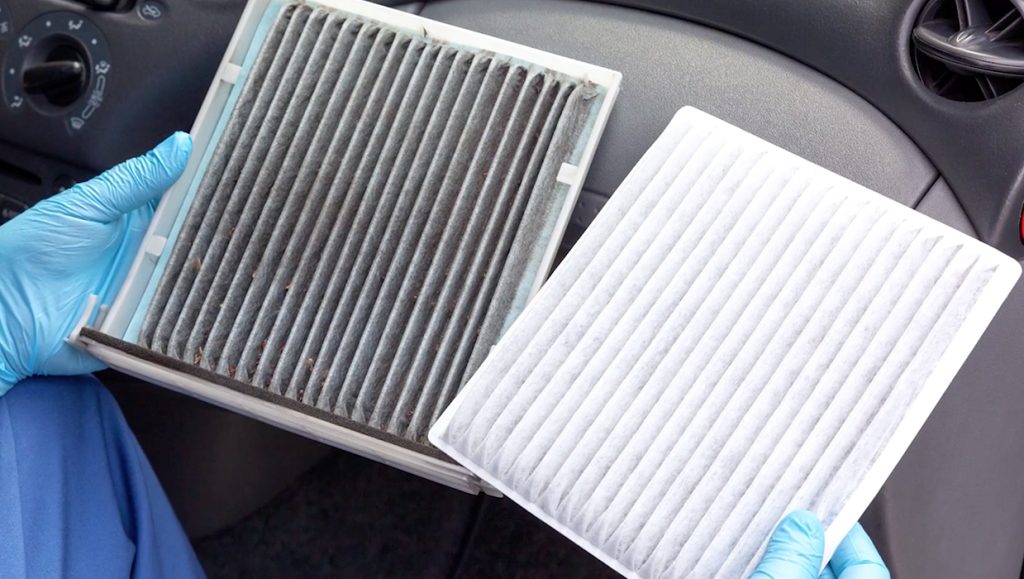
- Cabin Air Filter is another part to check when trying to determine if there are any blockages. This filter can be clogged, but a quick look should be enough for understanding if there is something wrong with it.
- Use a manifold gauge set to check the pressure levels in the air conditioning system. Correct high-side and low-side pressure numbers can be found on the internet for your specific vehicle, or in the repair manual. With the gauge connected, specifically check the air conditioning compressor pressure levels.
Checking the AC Compressor Health
When doing a check-up of the air conditioning system, starting with the compressor would be an easy and smart decision.
- While the engine is running, turn the air conditioner to the lowest temperature with the fans on a high setting. Check the clutch, it has to be engaging on the compressor.
- Clutch is not the pulley, but the piece in the center part which engages the pulley to the shaft of the compressor.
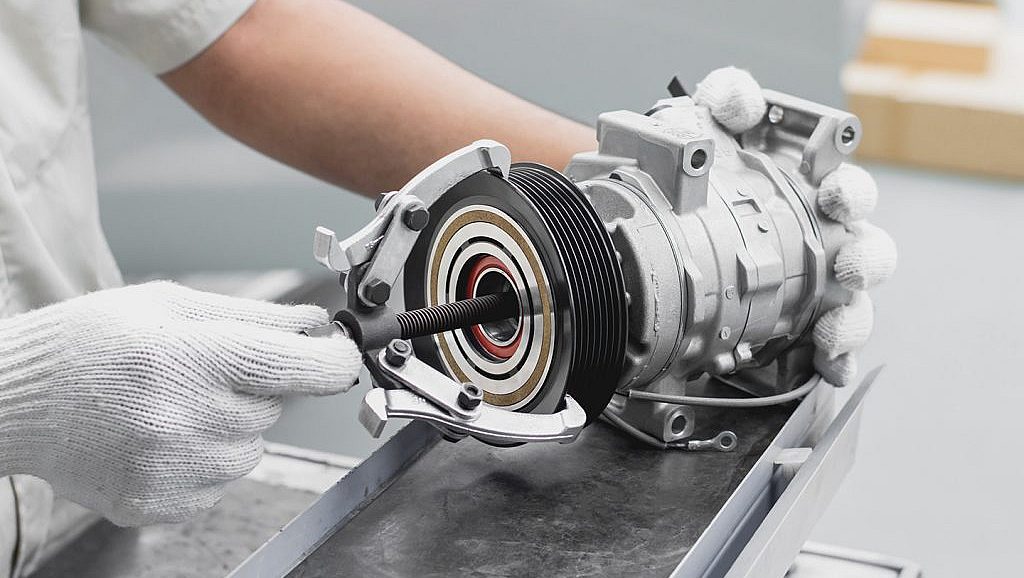
- If the clutch engages and disengages through short periods, it probably means that the refrigerant has to be refilled. While the manifold gauge is connected, you’ll see changes while this happens, the low side will drop quickly as the engagement happens. The arrow will hit a mark of too-low pressure. Then the clutch will disengage and the pressure will rise again.
- Adding refrigerant will make the pressure levels steady again when the compressor is running.
- If the clutch doesn’t work, use Voltmeter and check if the voltage even gets to a compressor. If not, the clutch may be broken. Other reasons for voltage absence could be a broken fuse, cycling switch, or low refrigerant pressure which doesn’t allow the low-pressure Сutoff Switch to cycle the compressor.

AC Leaks: What Parts Could be at Fault?
Thankfully, the most common breakage of any vehicle’s air conditioning system is leakage. It is easy and cheap to repair at any car service, but if you’d like to do a check-up yourself, here’s what to look for.
- UV Air Conditioner Leak Detection Kit is the instrument that will help you find the leakage fast and east. Read the instructions on the package carefully so you understand what to do before applying UV dye and then using UV light to detect the leak.
- Carefully check around all the fittings, they have to be secure and healthy.
- Hose manifolds on the compressor are another parts to be thoroughly checked with UV AC Leak Detection Kit.
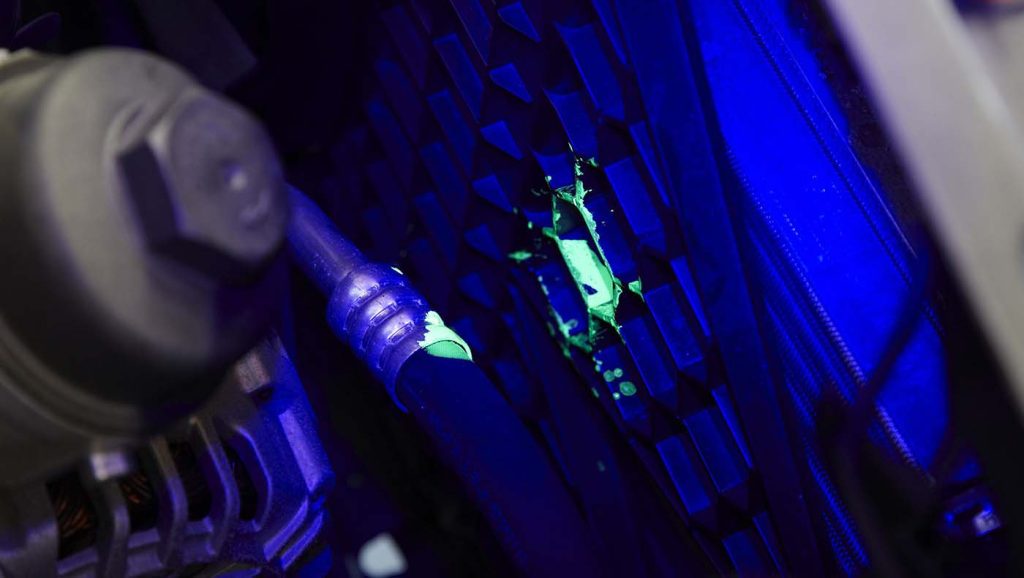
- On the back of some compressors there are front seals and o-switches that provide the sealing for the pressure switches. Check these carefully.
- Hoses are crimped into the fittings, check these places of connections.
- Don’t forget to check Schrader Valves.
- Carefully check the condenser for pinholes.
- Use the UV light in the place where the evaporator drains the condensation. Sometimes some oil or dye can be found there.
- Remember, the dye check-up cannot be performed if the system is too low on pressure and the compressor is not working.
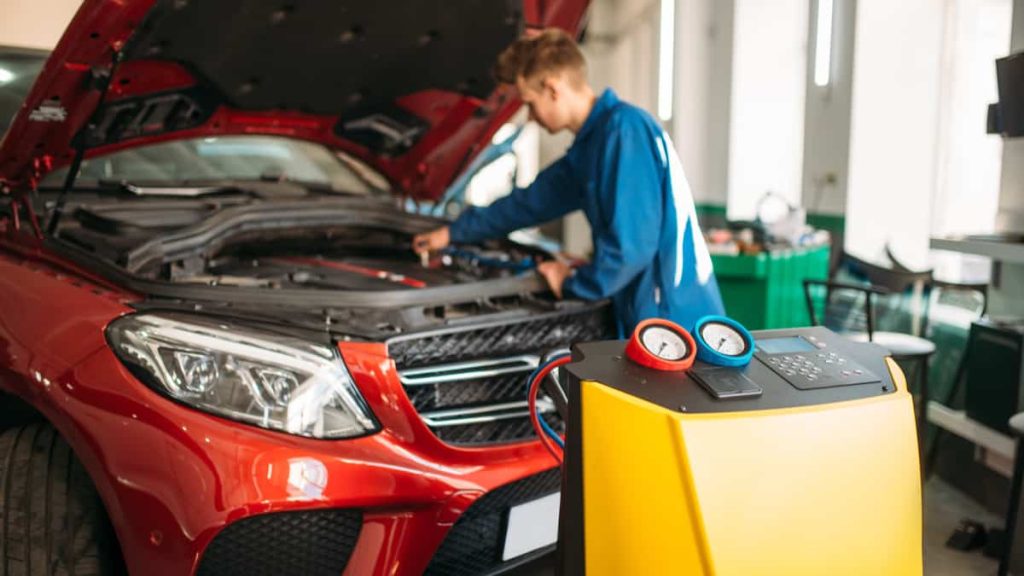
How Much Does It Cost to Repair the Car’s Air Conditioning?
It is not an easy task to predict how much you’ll spend on AC repairs. It depends on the vehicle and spare part manufacturers and models. It also depends on what exactly broke down.
Serious problems that involve spare parts replacement may cost you up to $2000. This price varies between car services and will change depending on what exactly needs to be replaced.
If you have to replace the entire air conditioning system, it may cost you up to $5000 depending on the vehicle and AC models.
Small repairs like leakage problems will cost you no more than $300. Recharging the air conditioner, which is a necessity for some vehicles, will cost you no more than $200.
